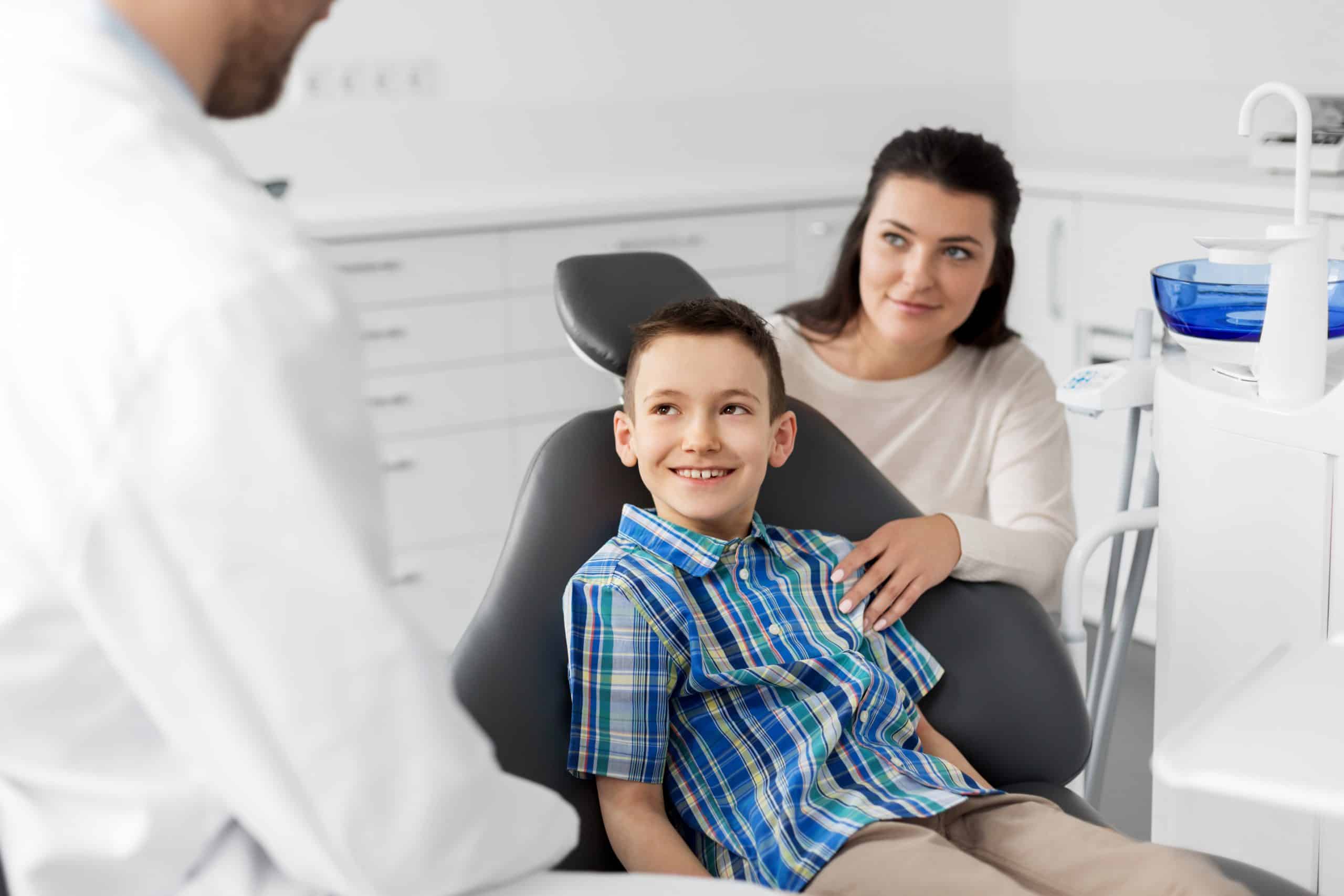Services

For the Entire Family
From complete oral exams to full mouth rehabilitation, Novak Dental promises patients a treatment plan tailored to their unique needs. With the most advanced technology and a staff of experts, our Vero Beach dental office offers a comprehensive suite of services to meet the needs of your entire family.

From complete oral exams to full mouth rehabilitation, Novak Dental promises patients a treatment plan tailored to their unique needs. With the most advanced technology and a staff of experts, our Vero Beach dental office offers a comprehensive suite of services to meet the needs of your entire family.
Experience Exceptional Care at Novak Dental
Book an appointment today at our Vero Beach dental clinic!
Dental Services

Preventative Care
- Teeth Cleaning
- Complete Oral Exams
- Oral Cancer Screening
- Pediatric Dentistry
- Night Guards & Sports Guards
General Dentistry
Restorative Dentistry
Cosmetic Dentistry
Dental Technology
- Digital X-Rays
- Panoramic X-Rays
- Rotary Handpiece for Endodontic Treatment
- CT Scan
Same Day & Emergency Care
- Dental Injuries
- Chipped & Broken Teeth
- Tooth Pain
- Call for an Immediate Appointment
Pre-Op
Instructions
The following pre-operative instructions should be followed for patients undergoing sedation:
- You may not have anything to eat or drink (including water) for eight (8) hours prior to the appointment.
- A responsible adult must accompany the patient to the office, remain in the office during the procedure, and be able to drive the patient home.
- The patient should not drive a vehicle or operate any machinery for 24 hours following the anesthesia experience.
- Please wear loose fitting clothing with sleeves that can be rolled up past the elbow and low-heeled shoes. Contact lenses, jewelry, and dentures must be removed at the time of surgery.
Post-Op
Instructions
-
- The surgical area will swell.
- Swelling peaks on the second or third postoperative day.
- Trismus (stiffness) of the muscles may cause difficulty in opening your mouth for a period of days.
- You may have a slight earache.
- A sore throat may develop.
- Your other teeth may ache temporarily. This is referred pain and is a temporary condition.
- If the corners of the mouth are stretched out, they may dry and crack. Your lips should be kept moist with cream or ointment.
- There will be a space where the tooth was removed. After 24 hours, this area should be rinsed following meals with warm salt water until it is healed. This cavity will gradually fill in with new tissue.
- There may be a slight elevation of temperature for 24 to 48 hours. If the temperature continues, notify us.
- It is not unusual to develop bruising in the area of an extraction.
- Please take all prescriptions as directed.
General Oral Care
Following Surgery
Women, please note: Some antibiotics may interfere with the effectiveness of your birth control pills. Please check with your pharmacist or physician.
- Do not rinse or spit for 24 hours after surgery.
- Keep fingers and tongue away from socket or surgical area.
- Use ice packs on the surgical area (side of the face) for the first 24 to 48 hours, apply ice 20 minutes on—10 minutes off. Bags of frozen peas work well. Use moist heat after 24 hours.
- For mild discomfort, take Tylenol or Ibuprofen every three to four hours.
- For medium or severe pain, use the prescription given to you.
- Drink plenty of fluids. (Do not drink through a straw).
- After the first post-operative day, use a warm salt-water rinse following meals for the first week to flush out particles of food and debris that may lodge in the surgical area. (1/2 teaspoon of salt in a glass of warm water. Mouthwash can be added for better taste.)
- Diet may consist of soft foods which can be easily chewed and swallowed. No seeds, nuts, rice, popcorn, etc.
- A certain amount of bleeding is to be expected following surgery. Bleeding is controlled by applying pressure to the surgical area using small, rolled gauze for 90 minutes. After that time, remove the gauze, and then you may eat or drink. If bleeding persists, a moist teabag should be placed in the area of bleeding and bite firmly for one hour straight. This will aid in clotting blood. Repeat if necessary. If bleeding still persists, call our office.
- We suggest that you do not smoke for at least five (5) days after surgery. Nicotine may break down the blood clot and cause a “Dry-Socket.”
Special Considerations Following Removal of Impacted Teeth
- Removal of impacted teeth is a surgical procedure. Post-operative problems are not unusual, and extra care must be taken to avoid complications.
- Severity of post-operative pain will depend on the procedure and your physical condition. Take prescribed medication for pain precisely as directed.
- Healing of the surgical site is variable.
- Swelling can be expected. Be certain to apply ice bags as directed above.
- Difficulty in opening your mouth widely and discomfort upon swallowing should be anticipated.
- Numbness of lips and/or tongue on the affected side may be experienced for a variable period of time.
Further Post-Op Instructions
After extractions and other Oral Surgery procedures, follow the simple instructions below to minimize complications and help ensure prompt recovery.
To control bleeding:
- Immediately following the procedure, keep steady pressure on the bleeding area by biting firmly on the gauze placed there by your oral surgeon. Pressure helps reduce bleeding and permits the formation of a clot in the tooth socket. Gently remove the compress after the local anesthesia has worn off and normal feeling has returned.
- After 24 hours: some oozing of blood may persist. If necessary, resume the use of moist tea bags. After the bleeding has stopped, cautiously resume oral hygiene.
To relieve pain:
- Immediately following the procedure, begin taking medication as directed by your oral surgeon to minimize discomfort when the anesthesia wears off and the feeling is back to normal. The application of an ice bag can also help relieve discomfort.
- After 24 hours: continue to take your medication if pain persists and use an ice bag if necessary.
To minimize swelling:
- Immediately following the procedure, apply an ice bag over the affected area. Use 20 minutes on and 20 minutes off for a period of 24 hours to help prevent the development of excessive swelling and discomfort. If an ice bag is unavailable, simply fill a heavy plastic bag with crushed ice. Tie the end securely and cover it with a soft cloth to avoid skin irritation.
- After 24 hours: it should not be necessary to continue with cold applications. You may expect swelling for four (4) days to one week and a fever of 99 degrees F to 100 degrees F.
Oral hygiene is important:
- 24 hours after surgery, rinse your mouth gently with a solution of one-half teaspoonful of salt dissolved in a glass of water. Repeat after every meal or snack for seven days. Rinsing is important because it removes food particles and debris from the socket area and thus helps prevent infection and promote healing. Brush the tongue with a dry toothbrush to keep bacteria growth down, but be careful not to touch the extraction site.
- Resume your regular tooth brushing, but avoid disturbing the surgical site so as not to loosen or remove the blood clot.
Maintain a proper diet:
- Have your meals at the usual time. Eat soft, nutritious foods and drink plenty of liquids – with meals and in between meals. Have what you wish but be careful not to disturb the blood clot. Add solid foods to your diet as soon as they are comfortable to chew.

In Case of Issues Emerging from Surgery
You should experience no trouble if you follow the instructions and suggestions outlined above. But if you should have any problems such as excessive bleeding, pain, or difficulty in opening your mouth, call us immediately for further instructions or additional treatment. Feel free to contact us if any doubt arises as to your progress and recovery.
Remember Your Follow-Up Visit
It is often advisable to return for a post-operative visit to make certain healing is progressing satisfactorily. A follow-up visit will be scheduled. In the meantime, maintain a healthy diet, observe rules for proper oral hygiene, and visit your dentist for regular checkups.



